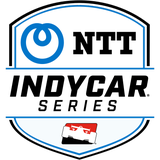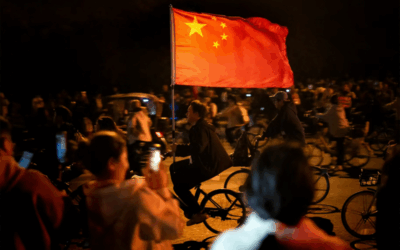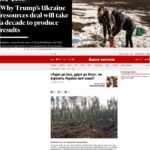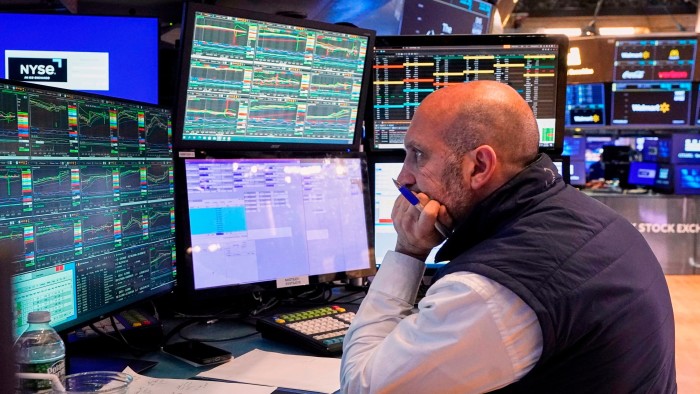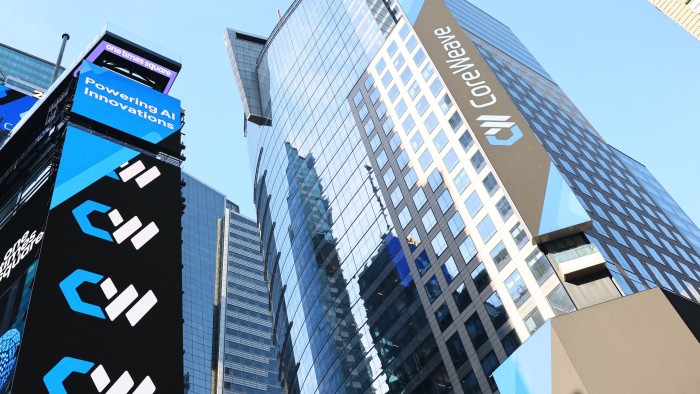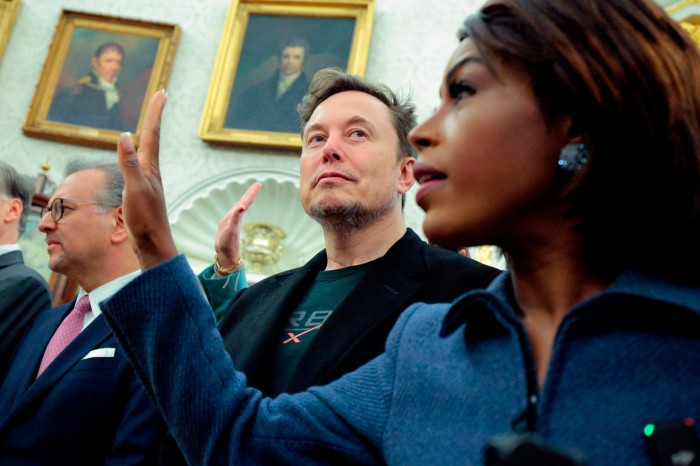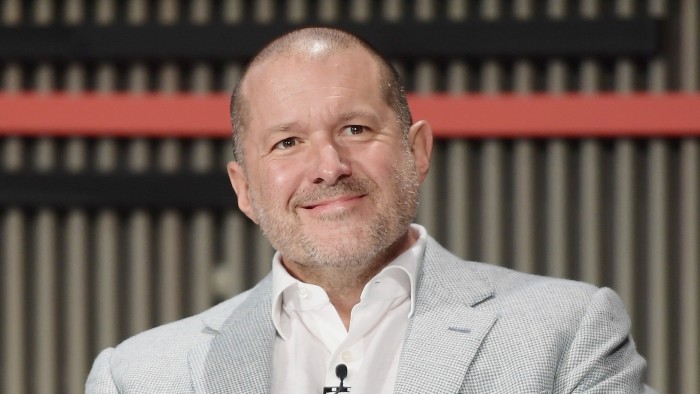Bling, bags and booze fall victim to Trump’s trade war
The latest round of new tariffs unleashed by Donald Trump will hit almost every industry across the globe, setting an unprecedented challenge for businesses already grappling with weak demand and inflationary pressures.
Industry executives warn the biggest victim will be US consumers who will be paying more to buy everything from Adidas trainers to Modelo, the country’s top-selling beer.
The US unveiled a baseline levy of 10 per cent with additional tariffs of up to 50 per cent on multiple trading partners, including the EU, Japan, Vietnam and Cambodia.
Retail and consumer goods
Leading footwear and clothing brands will be hit hard by the new tariff regime for south-east Asian countries.
Many retailers have moved sourcing away from China to manufacturing hubs in Vietnam, Cambodia and Indonesia, which are now subject to punitive tariffs of up to 49 per cent.
Shares in Danish jewellery maker Pandora fell 12 per cent on Thursday as investors fretted about the effect of tariffs on its manufacturing facilities in hard-hit Thailand. The group estimated the cost of the tariffs to be DKr1.2bn a year, with the impact for the rest of 2025, including mitigation measures, totalling about DKr700m.
The US also confirmed the end of duty-free shipments for small-value packages from mainland China and Hong Kong in a blow to ecommerce companies such as Shein and Temu. The “de minimis” exemption on packages valued under $800 will end on May 2.
Shares in retailers with supply chains in south-east Asia dropped, with sportswear groups such as Nike, Adidas and Puma down about 10 per cent. Shares in Swedish retail group H&M, which largely sources its products from China and Bangladesh, were down 4.5 per cent.
Laura Onita in London, Florian Müller in Frankfurt, and Richard Milne in Oslo
Wine and spirits
European groups that rely heavily on exports to the US will be the biggest losers. Rémy Cointreau has the highest exposure, with 38 per cent of its sales made in North America in 2024, almost all of which came from the EU.
Trump’s move to extend tariffs on aluminium to include all imported canned beer and empty cans bodes badly for Mexican beer. Constellation Brands imports the wildly popular Modelo, Corona and Pacifico beers to the North American market.
Mexican beer makes up about 85 per cent of the group’s net sales, amounting to a 25 per cent hit to operating income, according to analyst estimates.
Companies such as Diageo and Campari, which sell tequila and Canadian whiskey, breathed a sigh of relief after the White House exempted products complying with the USMCA deal. Shares in Diageo, whose US businesses are heavily skewed towards tequila and Canadian whiskey, rose on Thursday.
Madeleine Speed in London
Automotive
Foreign carmakers face a 25 per cent tariff on all vehicles assembled outside the US. Vehicles and car parts from Mexico and Canada that are compliant with the 2020 US-Mexico-Canada Agreement (USMCA) on trade will remain exempt from the tariffs.
A wide range of car parts will also be subject to the 25 per cent tariff from May 3. Christophe Périllat, chief executive of French car supplier Valeo, said half the company’s customers had already agreed to a full price increase to absorb the tariff cost.
While carmakers were spared the additional “reciprocal” tariffs on US trading partners, UBS warned the levies were still likely to raise the price of raw materials and electronics parts, increasing vehicle costs.
Consultancy Anderson Economic Group expects the tariffs to add up to $5,000 for American cars facing the lowest tariffs and as much as $20,000 for some imported models, leading to a $30bn impact on US consumers in the first year of tariff implementation.
US carmakers are better placed, but even General Motors and Ford will be affected since they source components from outside the US. Bernstein estimates a near 10 per cent hit to GM’s revenue due to the tariffs.
Jeep owner Stellantis also said it would temporarily stop production at its plants in Canada and Mexico.
The biggest losers include German carmakers BMW and Mercedes-Benz since many of the parts used in their US-sold vehicles come from Europe. Subaru, meanwhile, imports all of the power trains for its US-sold vehicles from Japan.
Kana Inagaki in London, Claire Bushey in Chicago, Patricia Nilsson in Frankfurt and Ian Johnston in Paris
Luxury
Shoppers in the US, luxury’s biggest market, should expect the cost of their handbags and ready-to-wear fashion to increase as companies raise prices to compensate for Trump’s tariffs on the EU and Switzerland, where the goods are made.
On average, luxury brands would need to raise prices by 6 per cent in the US to offset the tariff impact, or else face a 7 per cent fall in their earnings before interest and taxes, said UBS.
However, the industry has pricing power, which should shield it from the worst of the impact. Rich Americans are also likely to double down on one of their favourite pastimes: shopping abroad.
The bigger concern will be the hit to global consumer confidence at a time when the luxury industry is already slowing down following the frenzy of the Covid-19 pandemic boom. Some companies, such as Ferragamo, LVMH and Cartier owner Richemont, are more exposed to the Americas than others, according to Barclays.
“What we should worry about . . . is [if] the new American policies precipitate a sharp global recession and stock market correction. That would be the black swan scenario,” said Luca Solca at Bernstein.
Adrienne Klasa in Paris
Pharma
Pharmaceuticals are exempt from tariffs for now, although Trump has signalled he could take action focused on the sector at a later date. Manufacturing would come “roaring back” to the US, he said on Wednesday or face a “big tax”.
The mixed messages meant some stocks, including AstraZeneca, GSK and Novartis, rose on Thursday, while others, such as Novo Nordisk and Roche, fell.
Drugmakers had been hoping that a 1994 World Trade Organization deal excluding medicines from tariffs and other duties would protect them. But in recent weeks, some, including Eli Lilly and Johnson & Johnson, have announced large investments in the US over tariff concerns.
The generics industry could be the hardest hit by potential tariffs because of its low margins. Analysts at Jefferies believe the sector could be spared because it is a “significant contributor to lowering drug costs in the US”, and Trump seemed focused on branded drugmakers, which have moved manufacturing to Ireland because of its lower corporate tax rate.
Hannah Kuchler in London
Aviation
Trump’s tariffs are expected to make flying more expensive for passengers as aerospace companies pass on higher manufacturing costs.
About 20 per cent of the materials used to make Boeing planes are imported, and “the tariffs will drive up the cost of making aircraft”, said analysts at Vertical Research Partners.
European plane manufacturer Airbus has built an assembly line in the US, but will face higher import costs there. The price increases are likely to be passed on to airlines and, ultimately, to customers.
Although Airbus would be able to shift costs to its customers, the company was still “vulnerable” because of the size and complexity of its supply chain, said analysts at Barclays.
Philip Georgiadis in London
Logistics
Shipping and logistics groups, many of which made big profits during the trade disruption of the Covid pandemic, are hoping that the tariffs fallout will offer an opportunity.
Logistics executives said that customers have been paying a premium to fly goods into the US and stockpile products in US warehouses. Many logistics businesses also provide consultancy and customs services, which are in high demand as customers rush to understand any new costs and border processes that they will face.
Maersk, a leading container shipping group, said it was expecting “some rush airfreight orders” before Trump’s latest tariffs come into effect in the coming days.
Beyond this rush, Trump’s decision to remove the de minimis tax exemption for low-cost imports is expected to hit the air freight market, which has been boosted by growing demand from Chinese retailers that benefited from this exemption.
Fears of a downturn in trade hit the share prices of Danish group AP Møller-Maersk and Germany’s Hapag-Lloyd, two of the biggest container shipowners. Shares in some of the biggest international freight-handling companies, including DHL owner Deutsche Post, Kuehne+Nagel and DSV, also fell.
Oliver Telling in London
